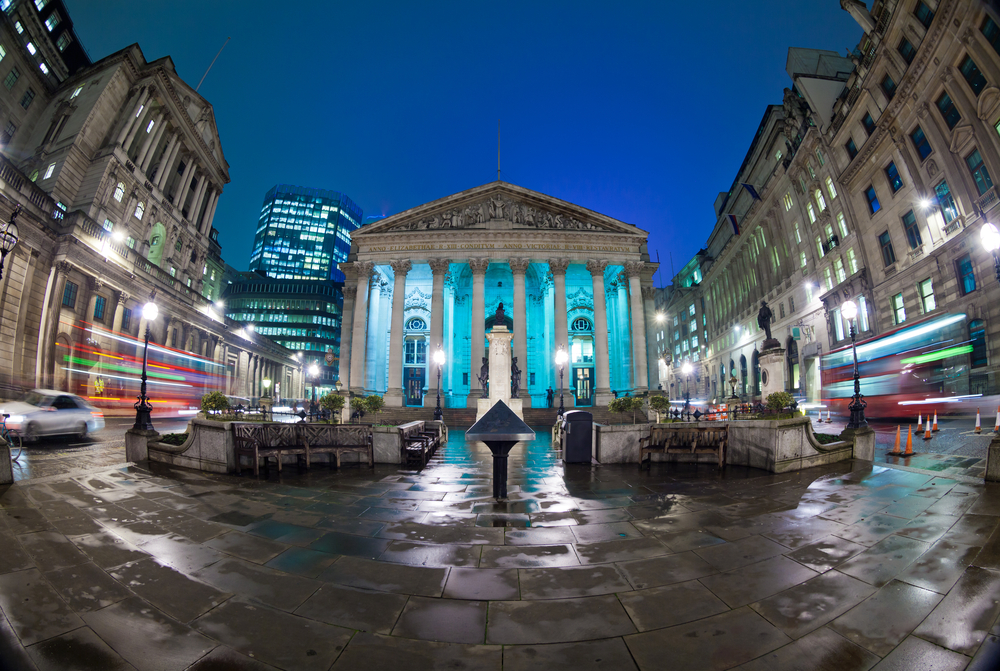UK economic growth was higher than expected in the three months to September, increasing the possibility that the Bank of England will raise interest rates next week. According to the Office for National Statistics, UK gross domestic product was estimated to have increased by 0.4% in the third quarter, slightly up on the 0.3% seen […]
 UK economic growth was higher than expected in the three months to September, increasing the possibility that the Bank of England will raise interest rates next week.
UK economic growth was higher than expected in the three months to September, increasing the possibility that the Bank of England will raise interest rates next week.
According to the Office for National Statistics, UK gross domestic product was estimated to have increased by 0.4% in the third quarter, slightly up on the 0.3% seen in the previous two quarters.
Economists said the better than expected growth – higher than the consensus forecast of 0.3% – paved the way for the Bank’s Monetary Policy Committee to raise the interest rate to 0.50%.
Ian Stewart, chief economist at Deloitte, said: “For weeks the Bank of England has been semaphoring that interest rates are heading up. Today’s growth figures show that, despite the Brexit headwinds, UK growth is good enough to give the Bank the green light for a rate rise next Thursday.”
Manufacturing returned to growth after a weak second quarter, increasing by 1.0%.
Quarterly growth in the services sector – which accounts for 80% of GDP – ticked up 0.4%, despite the ongoing real pay squeeze.
Construction output fell for the second quarter in a row, although the industry remains “well above its pre-downturn peak”.
Ruth Gregory, UK economist at Capital Economics, said: “The latest GDP figures revealed that the economy re-gained a bit of momentum in the third quarter and have probably sealed the deal on an interest rate hike next week.”
Following the news, the pound climbed by nearly 1% against the dollar to $1.32.
Responding to the news, Chancellor of the Exchequer, Philip Hammond, said: “We have a successful and resilient economy which is supporting a record number of people into employment.
“My focus now, and going into the Budget, is on boosting productivity so that we can deliver higher-wage jobs and a better standard of living for people across the country.”
How will a rise in interest rates affect your mortgage?
With inflation having risen and unemployment falling more quickly than the MPC anticipated, this increases the probability that interest rates will go up next week.
Interest rates were lowered to 0.25% in August 2016 to help boost the economy following the shock Brexit vote. It was the first interest rate cut since 2009 when the financial crisis was at its peak.
If the Bank decides to hike interest rates, the knock on effect could see lenders raise mortgage rates accordingly.
However, despite the possibility of a rate hike to 0.50%, many experts expect rates to stay low and any rise to be gentle.
According to the Nationwide Building Society, a 0.25% rise in interest rates would see the average payment on a £200,000 mortgage go up by £24.61 a month to £1,090.27.
In anticipation of an interest rate hike many lenders, including Nationwide and Halifax, have already raised their mortgage rates.
Rachel Springall, finance expert at Moneyfacts, said: “Borrowers may have become accustomed to low mortgage rates but things could well be set to change.
“Some of the biggest lenders have put up the prices on certain deals and when this happens, it’s not usually long before other lenders follow suit.
“This almost overnight change in how lenders price their range just proves how we don’t need a base rate rise for mortgage rates to increase.
“There is still time for any disheartened borrower to grab a decent offer, but with rates moving in a upward trajectory, now is a good a time as any to get a mortgage.”














